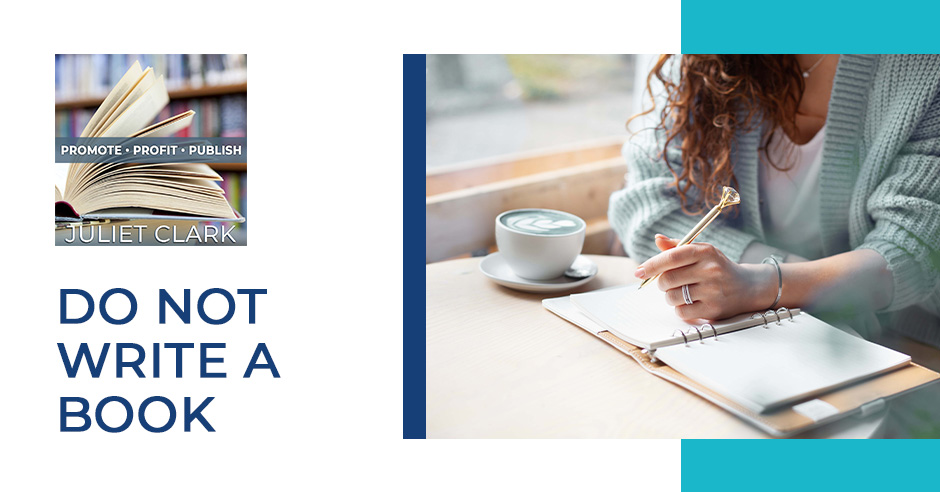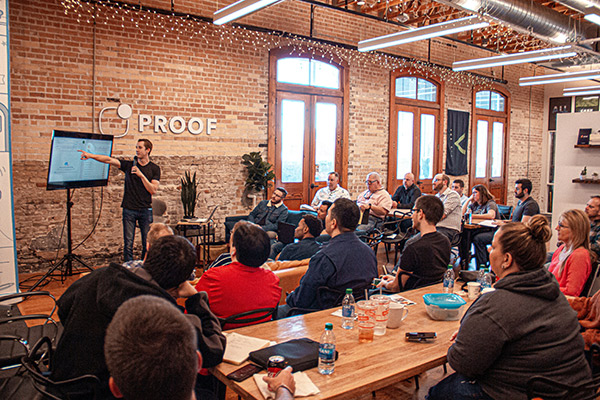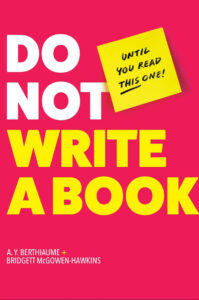
Today, we will pull the covers to reveal the secrets of successful authors in crafting a compelling book that will resonate with the audience. Alyssa Berthiaume and Bridgett McGowen-Hawkins, the writing and publishing experts, talk about their book, “Do Not Write A Book…Until You Read This One.” They discover the insider secrets that will keep you from making the biggest writing and publishing mistakes many authors make. So, don’t make the mistake of writing a book without attending our session first! Join us now to get the knowledge you need to succeed.
—
Watch the episode here
Listen to the podcast here
Do Not Write A Book
Until You Read This One
We have two guests who have written a new book that every single one of you guys should go buy if you’re thinking about writing a book of your own. Before we get started, I want to remind you to go over and get your free subscription to Breakthrough Author Magazine. You can find it at www.BreakthroughAuthorMagazine.com. Now, if you signed up in the last year and you didn’t get your copies, please go over and do it again. We just found that we had a major glitch in our landing pages and the connection to our list. It’s been fixed now, but if, for some reason, you didn’t get your free copies, please go over and sign up at www.BreakthroughAuthorMagazine.com.
This will be really helpful if you are putting out a book in the next year because we’re going to talk in 2024 about ditching the middleman strategies to bypass the book distributor fees, which are huge now, and cut down on the profit that authors are making on their books. Let’s get to our guests. We have two people here.
The first is Bridgett McGowen-Hawkins. She is an award-winning international professional speaker, author, and publisher and the Owner of Press 49. She’s been a guest in the past. You guys have probably seen her. The guest who wrote the book with her is Ally B or Ally Berthiaume. It’s like a perfume. I can never say her name right. Alyssa is the Founder of The Write Place Right Time.
It’s her virtual boutique of book coaching and ghostwriting services. As a writing guide or ghost, her services serve leaders, entrepreneurs, and visionaries across North America and Europe who know they have the power to activate healing on their own and of their readers by sharing their stories and spreading the message. She supports her clients in writing the book that will light up the world and ours. Ally is also the author of Dear Universe, I Get It Now: Letters On The Art and Journey of Being Brave and Being Me. In anticipation of this, hold on to our interview with Ally and Bridgett.
—
Welcome, Ally and Bridgett. It’s great to have you guys here.
Thanks for having us.
It’s fantastic to be here, Juliet.
I usually don’t interview two people at once, so you guys can gang up on me. I’m excited about your new book. I was one of the people who reviewed it. It’s very much needed for people to read. The reason I’m having them on and I realize, in some sense, they are competitors is that you have to read this book before you start writing a book because some of you have no business writing it. All the people that jumped off, thank you. Nobody is going to tune into this now. I mean that in the sense that you’re writing the books for the wrong reasons and maybe to the wrong audience or yourself instead of the reader. Tell us a little bit about the book and why you guys decided to collaborate on it.
I love this question and the story. Bridgett, do you want to tell the story or shall I tell it and you jump in on me?
We’ll go back and forth. You start and then I’ll fill in the chinks.
I do a live show on a monthly basis called Open Book Broadcast and I had Bridgett come on as a guest expert and a publisher. We did our thing. We recorded and then after the stream yard was all done, we were still sitting in the studio. We were debriefing and got into this candid conversation about things we wish that authors knew before they did a damn thing. We think up and agreed on three main principles.
In the middle of that conversation and this is really funny, neither of us can’t remember which one of us said this next part, which we discovered when we were writing the book, but one of us said, “There’s a book here. There is an entire book based on these three principles, which we called the trifecta at that time, and we should we should write a book about it.”
Those three main things were 1) Treating your book like a business and having a strategy in business hat on, 2) Writing a damn good book and what that actually means and knowing it doesn’t mean winging it, and 3) Recognizing how to make money off of your book before you get going. It’s having a strategy around promotion and marketing front and center at the very outset and recognizing that there’s so much misinformation or misperception around those three things that we were like, “There’s got to be a whole book here.” I’m going to let Bridgett jump in here about how quick, how fast, and how short we thought it was going to be.
You will leave the dirt, grit, and grind parts to me, of course. Juliet, let me tell you. We initially said, “Let’s not make this super complicated. Let’s not make this long, boring read or whatever,” and it’s not long and boring. Let me be very clear. It’s long. Initially, we said it was going to be about 25,000 words. We wanted to be something that was easy that people could glance at the table of contents, pick out a few topics that spoke to them, get the information they needed, and be on their way. Ally did this beautiful job, being the ghostwriter and the writing coach that she is, of laying out the outline, identifying exactly what we were going to cover in each part, and assigning to each one of us based on our areas of expertise, which parts we would each write.
We had a wonderful time sitting down, writing and hitting our time points and deadlines. As we’re writing, both of us, ever so often, would say, “I’m writing my part, but I feel like we would be remiss if we didn’t include X.” “I got to agree with you,” and then another one would come back and say, “I’m writing this and we need a chapter on X.” “Yeah, I think so.” The next thing we know, we’re beyond 25,000 words. I say, “Ally, we’re at 32,000 words. We said 25,000. What do we do? Do we just keep at it?” “Let’s keep at it.” It grows to 40,000, 50,000, and 60,000. The book is over 97,000 words. That was not the original plan, but here’s the thing. I want the audience to know it’s not fluff. It wasn’t us adding stuff because we wanted to.
We initially wanted this to be lean. We wanted this to be a guide that cut to the chase. No fluff and not a lot of unnecessary stuff because who has time for that? As we were writing the book, it occurred to us that there were a lot of things that we assumed, knew, and did automatically. We thought, “What if readers don’t automatically know this? What if readers don’t automatically understand that you shouldn’t take the free ISBN?” You can, but you shouldn’t. I’m not going to tell you why. On this show, you need to buy the book to find out why. Do they understand the differences among the types of editors? You can’t throw out there, “I need an editor.”
An editor for what? Do you want somebody looking for grammar, punctuation problems, and errors and fixing those, or do you want somebody to look at the flow and the development of your manuscript and so on and so forth? There are a lot of things that we made assumptions about and we knew we could highlight them, but then, as we thought a little bit more about it, we needed to dive more deeply to make sure no matter who picked up this book, they understood exactly what we were saying and they could apply what we were writing.
That is so true. You guys probably don’t know this but back in 2016, I had a coach who came in supposed to be reformatting my business. All I kept hearing from her is, “Your copy has to say this is easy. People won’t do it unless it’s easy.” I kept feeling like I was failing and finally, I got to the point where I fired her. I went back to my copywriter and I said, “This is hard. People need to know it’s hard and there is a process.” That’s what I loved when I was reading through to review your book. You guys did the same thing I did. Did I have as many clients after that? I had more clients.
When I said this is work and this is hard, I had more clients with expectations that it was going to be hard. You guys are going to get a good laugh out of this. I had a review of my services for traffic school and the woman used the word relentless. She was relentless in assignments, but that’s what you needed to be. That’s what I loved about your book. It’s not fluff. It’s not, “This is going to be easy. It’s hard. It’s work. Let’s do it.” Let’s start with the beginning here. What are the things people need to know before they even write a word of that book?
We kick off the book with basically mindset and intention. We talk about in the book something that we call ABCD and that’s Approach your Book with the Commitment to Doing it right. We went back and forth. We say well or right because there are definitely differences between doing a book well and doing it right and we landed on right. Right as in, you should definitely go through X, Y, and Z steps in order to make sure that you can stand behind your book, you’re confident in your book, and you’re putting the best possible thing out there and into the world. We start off by talking about how you need to have commitment. You’re not going to cut corners. You’re not going to try to find hacks and shortcuts. You’re not going to go cheap on your editing.
You need to be committed from the get-go and recognize this is a marathon, not a sprint, that you have to invest before you’re going to earn money back and those types of things. Right next to that commitment is this idea of your book being your business. It’s something that we talk about that truly feels different than what some of the other books out there on writing and publishing say. We want you to be the CEO of your book. We want you to think of your book as a business. For every department that you can think of that’s in a business, it transfers exactly over to a book. You’re going to have some administrative tasks in managing your book. Your business has a financial plan. Your book better has one like a budget and understanding how you’re going to make that money back.
Don't go cheap on your editing. You should be committed from the get-go and recognize that this is a marathon, not a sprint. You have to invest before you earn money. Share on XWe could go tit for tat in terms of anything that you would need. As a CEO of a business, you need to be thinking about as an author to bring that book into the world and make the most of it. We spend a lot of time on that upfront part. We’re getting people to think about their books differently. It’s not about writing. It’s about your mindset, how you’re thinking about this, and how you’re going into the energy and effort of writing a book.
I feel like that’s where people are getting it wrong because they are winging the entire process and they’re not thinking about the long game and anything more than the final product. They don’t even realize that that final product is going to be worthless if they haven’t considered what they want to do with it in the beginning. They haven’t considered the fact that after you have it, you aren’t done with it. Bridgett, you might jump in.
There can be a lot of unrealistic expectations. I’ve had people come to me wanting their book to pay their mortgage. I’m not going to say that is impossible. The thing is, you had better be ready to work. Your book, in order for it to rake in thousands and tens of thousands of dollars in royalties each month, means that you’re talking about it nonstop. You’re posting about it. You are having the conversations and the podcast interviews. You are speaking about it. You’re holding the workshops about it. Every time people turn around, you are talking about your book. Think about it. Think about your favorite restaurant, clothing line, or anything. In order for that business, restaurant, or clothing line to remain profitable, they have to remain relevant.
You’re going to see an ad in a newspaper. You’re going to see a spread in a magazine. You’re going to see a commercial on television. You’re going to hear the ads on the radio. It’s going on all the time. McDonald’s has been in business for however long and has served however many burgers but they’re not going to stop talking about their burgers and their fries no matter how unhealthy they are. They’ve got to keep the doors open. If you want to keep those books open that you’re trying to sell, you’ve got to keep your mouth open and talk about it. That mindset piece is so important. I believe Ally and I put it this way. What do you want your book to do for you and then what are you going to do for your book so that it can do it for you?
That’s what leads into that section where we talk about. How do you make money off of your book without selling a single copy? First, you’ve got to have the mindset of being the CEO of your book and then, like a restaurateur, it will take one ingredient and have a breakfast item, a lunch item, and a dinner item.
The same thing goes for your book. Your book is not just a book, but it’s going to lead to speaking engagements, the masterminds, the products, the services, and the merchandise that come from you now being this published author. I’ll tell people in a minute. I don’t make money off of selling one of my books for $20 or $30. It’d be lovely if I happened to sell one or somebody sees one that I have on me and wants to buy it from me.
That’s nice, but it’s what happens when people read the book, “I need to get her on my stage.” They read the book and they’re like, “We need to have her come in and coach some of our team on presentation skills.” I present at a conference and there’s a book signing. Now they’re taking the book back to their boss, “We’ve got to get Bridgett in to do a training.” That’s what my book does for me. Not the $30 price tag on it, but everything that comes from me now being a published author. That’s what’s so important for people to understand as they’re writing their books. What do you want it to do for you and how can you shift your mind into, “This is a business base?”
I will tell you a lot of the people who come to us to publish don’t have their business set up in a way that facilitates this, which is one reason their business is failing. They think they need that book and they haven’t really compartmentalized it. We get people who don’t have an LLC set up. They don’t have a separate bank account. They don’t have content produced.
All those little things that make up their business, they don’t have in place and they think the book is the avenue that’s going to get it done for them, but they need that set up to build the audience and then to write the book. Those are the types of people who shouldn’t be writing a book. Get your business in order the way it needs to be or get it set up first.

Write A Book: Get your business in order the way it needs to be, or get it set up first.
I’m going to stop you on that one, Juliet. I don’t want people to feel like they’ve got to get everything in place before they put a pin to paper because sometimes, that can feel overwhelming and daunting. The first thing I want them to have in place is the mindset. You can walk and shoot gum at the same time. You can write your book and set up your LLC. You can write your book and go set up your bank account. I just don’t want you to write the book and then think all of this is going to come together, but you can do them simultaneously.
Ally and I happen to have our LLCs. I have an S Corp set up already and we had our bank account set up. It happened that way that we had already done all of that. I was a professional speaker before I became a publisher and an author, so I had that stuff set up. I don’t want to overwhelm people by having them think, “I’ve got to get all the stuff in place.” No, but I want you to know it needs to get done and you can do it all at the same time. By the way, we’ve mentioned the name of the book. Have we? Do not write a book until you read this one. Real talk.
The point I was trying to make, Bridgett, is if you’re not set up to be a business already in the sense of your creating content, you’re building that audience, then who are you writing the book for because there’s so much going on out there? There’s so much noise. How many new books are going on Amazon and being published every month? You’ve got to have that way to stand out. That was more about where I was going. Have that list that you’re going to sell it. Have that content out there and have that social media because you’re going to need it all to promote on there.
If I’m not mistaken, Ally, you talk about building these followers and community and finding them. First off, let’s find who needs the content that you’re creating because you might find yourself creating some crap that nobody wants.
To Juliet’s point, this is where having content creation already happening is going to be more helpful and beneficial to writing a book after the fact rather than simultaneously because your content as a business owner allows you to test the waters, test your readers, and test your audience. The sales calls that you’re having as an entrepreneur or business owner with your ideal client, those conversations turn into what’s something I could solve within my book. If you’re not having these conversations because you don’t have this and that or the other thing set up, your offers are a little bit murky. There’s nothing on the website that says what you do and how you help people, then connecting the dots is going to be harder.
Does it mean that they have to wait? No, not necessarily, but I do think that in terms of having the right strategy or understanding of what you put into your book, it is going to be more difficult. If you want your book to work for your business, but your business has got wicked holes in it, you’re probably going to end up with a book with wicked holes in it. The book is not going to be the magic wand any more than the business is going to be the magic wand for the book. The thing that hits on both here is the mindset piece. As that CEO business person, you need your intention to say, “I’m not going to give this thing lip service. I’m going to go and set up that freaking entity. I’m going to get my website done. I’m going to create my offers.”
The book will not be the magic wand for the business any more than the business will be the magic wand for the book. Share on XThe same thing on the book side. It’s like, “I’m not going to talk about having a book. I’m going to write an outline. I’m going to map out where I’m going with this thing. I’m going to talk about what problem I am trying to solve for my readers.” Having those answers on either side means you have to be intended and committed to dial it in, figure out what you’re doing and what you’re about, who you’re trying to reach, what you want your business to do for you and for them, and also what you want your book to do for you and for them. It’s exactly the same equation on either side. It’s just a different thing that you’re creating. It’s business and write a book.
I was going to say, Ally, we talked about this in the book and this is almost a direct quote. As an author, if you don’t start talking about your book, building your community, and getting people used to the idea of you being this thought leader and this industry expert, you’re going to have more questions than you have book sales when you do finally finish it up. People are going to wonder what the heck she’s doing and what she wrote. About what? Where? At Amazon? The sooner you start getting into that mindset, building that community, and working on making sure people understand what’s coming, why it’s coming, and what problems it solves, the better.

Write A Book: If you don’t start talking about your book, building your community, and getting people used to being this thought leader and this industry expert, you will have more questions than book sales.
That is so true and listening to that community. One of the big mistakes that experts make when they write their books is they use expert words. If you’re already involved in that community, then you’re listening to the words that potential clients use to solve the problem, which more than likely are not the same words you’re using. I call that reflected marketing. You have to have your listening skills on to understand that while I may call it sales, you call it something else, so we’re not connecting. Getting that language right is important, too.
We even address that in a couple of different ways in the books. I’m going to go down two different lanes here. One thing that Ally and I do in the book is we have a feature called, “What does that mean?” Use jargon and some industry-specific terminology because we’re educating you. We’re getting you up to speed, but we’ll also drop back and have a what does that mean call out. We’re explaining what we’re talking about. We talk about ROI. Not that people don’t know what that is, but I’m just pulling something out of my head. I can’t think of any great examples right now, but we do that so you don’t feel lost in the sauce. This is more specific to the reader.
We talk about how you use the Google search feature to find the exact language people use to search for the answers to their problems and the problems your book solves. We go into depth about why it is important and how you use it. Not just with the content of your book but also with the metadata. Maybe that’s one that we use in the “what does that mean.” How do you use that in the metadata, which is essentially all of the information tied to identifying your book, whether it’s the ISBN, the title, or the subtitle?
How do you use the Google search terms that people are out there using to find answers to the challenges that your book solves? How do you use that information to plug into your metadata to make your book more searchable or to increase the likelihood of it showing up in those results when people are out there looking for answers to their problems?
I jump in here, too and talk from the developmental standpoint of a manuscript. When we are experts in something and surrounded by other experts in that field, it’s very easy to slip into industry jargon because it’s second nature. We take it for granted that we have all these words, understandings, and terminology that our customer or audience doesn’t. Bridgett and I try to look for those things. Even we have blind spots. We can’t always see everything that we might have said that’s like, “That’s an industry term. We better define it.” This is where having a beta reader around and a developmental editor outside of yourself is. It is important.
This is for those authors who are looking for that tip on developing their manuscript versus wanting to know how awesome our book is and that you should go and buy it. You don’t want to skip the time in the manuscript development, where you will allow sample readers to take a look at your manuscript. Those are those beta readers. They’re the first readers who are going to look at your manuscript while it’s still under the knife, if you will. They’re going to be able to pick out and say, “I don’t understand what this term is,” and help you identify where you are not being reflective, to use Juliet’s words. We had somebody who pointed out the word SEO or the acronym rather. It didn’t even occur to us.
The SEO wouldn’t be known by our readers, but then we thought, “We’re talking to aspiring authors who are doing this for the very first time. They might not have any understanding of SEO, what that is, and why it’s important in book terms.” We had to add in another one of those questions like, “What does that mean or parenthetical notation or whatever to make sure that our reader understood that term just in case.”
We talk in the book about not skimping on editorial, what the process looks like, and getting that feedback. This is where we don’t want people to be going to their English major friends or their family who’s good at finding where commas should go or whatever. You need to get your manuscript in front of sample readers, who are people that you are trying to target with your book.
They’re going to be your best eyes on the manuscript because they’re the eventual consumer of the content. Let them give you the feedback and let it be honest even if that hurts your feelings. Sorry, not sorry. When it comes to that developmental editor, you need that third-party professional objective perspective on whether or not there are gaps, holes, flow, or the big stuff to make sure that the eventual reader or the consumer of your product and good can get behind what you’re saying because you’ve not missed anything. Friends or family person might be objective. A few little golden unicorns are among them, but people shouldn’t be skimping on that part of the process.
Get your manuscript to sample readers you try to target with your book. They will be your best eyes on the manuscript because they're the eventual consumer of the content. Let them give you the feedback. Share on XThat’s so true. On my first book, all of the few copies I sold were purchased by my grandmother. You can’t rely on your friends and family for that. You guys don’t know this, but in my very first book, my best friend wouldn’t read it because she said, “I don’t want to tell you if it’s crap.” Get people around you who will tell you the truth and not be afraid to blow up a relationship.
If it sucks, it sucks. It may hurt your feelings and you’re going to go 1 of 2 ways. You’re going to say, “My feelings are hurt. This is garbage,” and throw it out or you’re going to say, “I am determined to be a better writer and make this a good book.” Hopefully, it’s the second in that since you took all that time to do it. I’m excited. When is the book coming out and where can we find it?
The book is coming out on Tuesday, January 23, 2024. It will be available on Amazon, Barnes & Noble, and all of your favorite online retailer’s sites. The title of it is Do Not Write A Book Until You Read This One. It’s available for presale at Press49.com. Go to our catalog there. I love the point that Ally and you were making about mindset. We start the book off about being in a CEO mindset. You understand if you get feedback that’s not glowing or wonderful as a CEO, you’re going to take it in and figure out how to use this to grow, so start with that mindset.
I want people to know this isn’t a book for only those people who are serious about making their book a business. Let’s say you want to know how to write great content. You can go directly to Ally’s chapters. You might want to know, “I’ve already written my book. How do I make money off of it without selling a single copy?” You go directly to my chapters. You want to get clear on the publishing landscape or you want to get clear on the editing landscape. For the former, you go to Bridgett’s chapters. For the latter, you go to Ally’s chapters.
Don’t feel like it has to be a book that you read only if you are at the beginning stage. You can be anywhere. You could have already published and you’re getting ready to write and publish again. Get the book. Maybe you’ve already published and you want to take that book to a new level, this book is for you. It’s for anybody anywhere on their authorship journey. Do not write a book until you read this one. It’s available on Amazon, Barnes and Noble, Books-A-Million, or wherever you love to shop.
Wherever books are sold. You sound like a commercial, Bridgett.
I know I did it in the introduction. If you haven’t gotten your free subscription to Breakthrough Author Magazine, go get it. This book is a good companion for that because our whole theme in 2024 is to ditch the middleman and strategies to bypass book distributor’s fees. Bridgett, being a well-known speaker, is one of the ways she sells books and avoids those distributor fees. The two of them together are something that people can read your book, know what to do, and work through. Also, what they need to build and some tips on how to build it as well. You guys, thank you so much. Where can we find both of you? Do you have a page set up for them to pre-order that book?
Go to Press49.com, click Catalog, and you’ll see it there. That will take you to the presale page.
That’s also where you’ll find Bridgett, which was the first part of that question. You can find the book but you can also find Bridgett hanging out over at Press49.com. If you want to get in touch with her, that’s where you’re heading. If you want to get in touch with me, you’re heading to TheWritePlaceRightTime.com.
Thank you, guys, so much and good luck with your new book. I know it’s going to be a best seller. You guys both are right on with everything you do.
Thank you so much, Juliet. Thanks for having us.
Important Links
- Breakthrough Author Magazine
- Press 49
- The Write Place Right Time
- Dear Universe, I Get It Now: Letters On The Art and Journey of Being Brave and Being Me
- Open Book Broadcast – YouTube
About Alyssa Berthiaume
 Alyssa Berthiaume is the founder of The Write Place, Right Time, her virtual boutique of book coaching and ghostwriting services. As a writing guide or ghost, Berthiaume serves leaders, entrepreneurs, and visionaries across North America and Europe who know they have the power to activate healing (their own and their readers’) by sharing their stories and spreading their message. She supports her clients in writing the book that will light up their world and ours. Berthiaume is also the author of Dear Universe, I Get it Now: Letters on the Art and Journey of Being Brave and Being Me.
Alyssa Berthiaume is the founder of The Write Place, Right Time, her virtual boutique of book coaching and ghostwriting services. As a writing guide or ghost, Berthiaume serves leaders, entrepreneurs, and visionaries across North America and Europe who know they have the power to activate healing (their own and their readers’) by sharing their stories and spreading their message. She supports her clients in writing the book that will light up their world and ours. Berthiaume is also the author of Dear Universe, I Get it Now: Letters on the Art and Journey of Being Brave and Being Me.
About Bridgett McGowen-Hawkins
 Bridgett McGowen-Hawkins is an award-winning international professional speaker, author, publisher, and the owner of Press 49.
Bridgett McGowen-Hawkins is an award-winning international professional speaker, author, publisher, and the owner of Press 49.
Love the show? Subscribe, rate, review, and share!
- superbrandpublishing.com
- Promote, Profit, Publish on YouTube
- Follow Juliet on LinkedIn
- Take the Quiz!










Leave A Comment